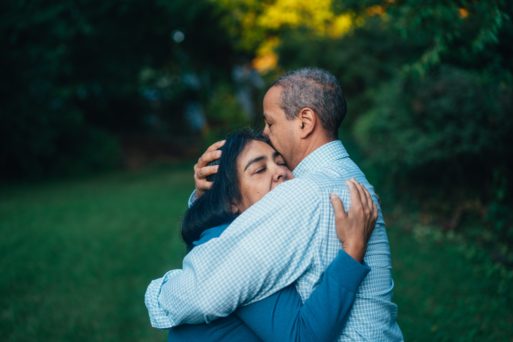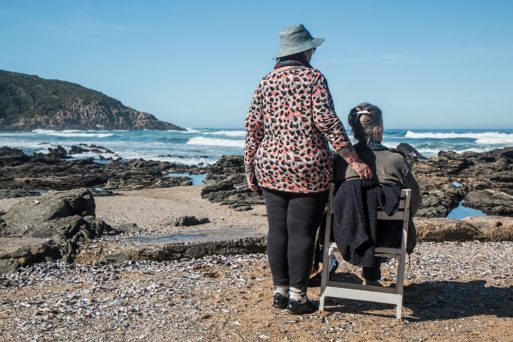When someone you know is diagnosed with cancer, the news can be as difficult as any you’ll ever receive. It’s hard to know the right things to say, which can leave you feeling helpless and confused. After all, there is no way to prepare for a thing like cancer. As I learned when a loved one of mine died due to melanoma, you can be overwhelmed by such a flood of disparate emotions that there seems to be no way clear of the torrent. I’d like to share with you some insights I’ve learned, as well as some great cancer etiquette advice from professionals.

Cancer Etiquette: What to Say?
This is often the toughest question for those with a friend or loved one diagnosed with cancer. Most of us really don’t know what to say, and this is natural and normal. Don’t feel you’ve failed if you find yourself at a loss for words. Often, the person feels equally befuddled, and this understanding between you both can be the first act of empathy, which is the keystone of supporting someone dealing with cancer. The American Cancer Society has some great tips on cancer etiquette. For example, sometimes the most valuable thing you can say is an honest and simple expression of care, such as:
“I’m not sure what to say, but I want you to know I care.”
“I’m sorry to hear that you are going through this.”
“If you would like to talk about it, I’m here.”
Listen Closely
Probably most important in supporting someone with cancer is being an empathetic listener. Not only does this allow you the opportunity to best support the person by understanding what they want, it’s often the thing they want most—someone who cares enough to just listen. When a person goes through something as life-changing as cancer, they often have difficulty sorting out their feelings. Acting as a sounding board can be a big step in helping them find their way to a more peaceful place. Learn more about the good things that can happen when you listen with your heart.

They Lead, You Follow
When you do speak to someone with cancer, do so in a way that feels comfortable for you, but always allow them to lead the conversation. Doing otherwise can lead to situations that are often far more painful than they need be. Be encouraging and supportive in all areas, even if you disagree with the patient’s decisions. Don’t be pushy. This may lead to some intensely sad moments, but your empathy and understanding in these moments is incredibly valuable. If you need practical guidelines for achieving this, the American Society of Clinical Oncology has some great advice.
Laughs Equal Smiles
You may also find yourself confronted with gallows humor (many people in situations like these use humor as a coping tool) and feeling uncertain about how to react. This is an easy one — just go with it. It may seem wrong to laugh in these circumstances, but they can be joyful moments full of empathy and compassion. In fact, they are as human as our worst bouts with grief, and sometimes they can be some of the last memories a person has. For a wonderful article on the value of laughter for cancer patients, try this one by Nancy Christie of Cancer Treatment Centers of America.
There is no one-size-fits all to cancer diagnoses and cancer etiquette, though being there for our loved ones is a good place to start. If you or someone in your life has been diagnosed with cancer, I am truly sorry for what you’re experiencing. If you’re feeling lost, you’re not alone.

 What to Say: Compassionate Cancer Etiquette
What to Say: Compassionate Cancer Etiquette


 “Hand to Earth” by Andy Goldsworthy
“Hand to Earth” by Andy Goldsworthy

 Caring for a Dying Loved One? Be Gentle With Yourself.
Caring for a Dying Loved One? Be Gentle With Yourself.














